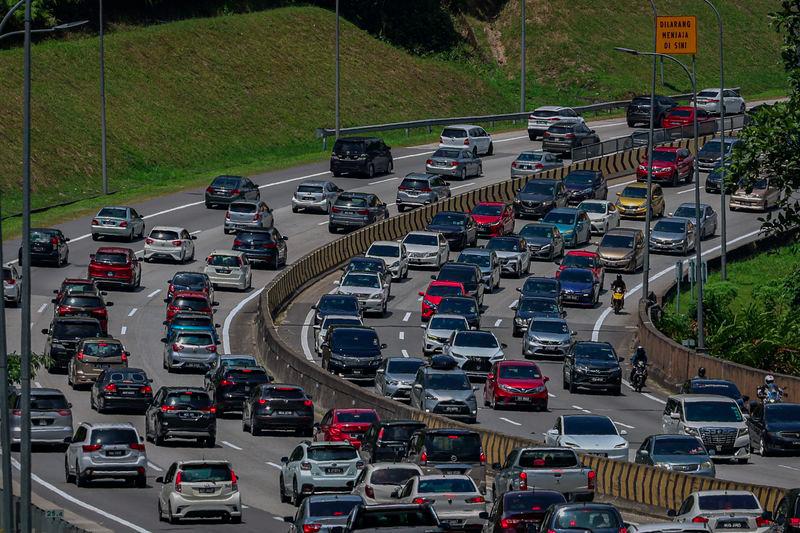PETALING JAYA: The government’s proposed Multi-Lane Free Flow (MLFF) toll system is set to transform Malaysia’s highways by reducing congestion and improving travel efficiency, but its success depends entirely on effective implementation and robust enforcement measures, said MY Mobility Vision founder and CEO Wan Md Hazlin Agyl Wan Hassan.
As a transport think tank and affiliate corporate member of the Chartered Institute of Logistics and Transport, the organisation focuses on transport policy analysis, advocacy, research, collaboration, stakeholder engagement, public surveys and educational outreach to enhance transport systems in the country.
“The system allows vehicles to pass through toll points at full speed. This ensures smoother traffic flow and reduces travel time by 10% to 15% as it integrates Radio Frequency Identification (RFID) and Automatic Number Plate Recognition (ANPR) technologies to facilitate seamless toll collection,” said Wan Md Hazlin.
Despite such advantages, he stressed that proper measures must be implemented to prevent issues such as unpaid toll fares.
“Deploying RFID and ANPR technologies would automatically capture vehicle details and process toll transactions, reducing the risk of fare evasion. Linking toll payment data with Road Transport Department systems could also be done to strengthen enforcement and ensure compliance.
“In a system without physical barriers, a robust enforcement framework is essential, so multiple payment options must be available to prevent issues such as insufficient balances or incorrect toll charges.”
He said this is important as Malaysia’s current toll system has expanded beyond Touch ‘n Go to allow payments via credit and debit cards as well as e-wallets, which provides drivers flexibility and should be a mandatory feature under the MLFF system.
He suggested implementing a real-time transaction portal for drivers to verify toll deductions as this would build public trust.
“A clear, user-friendly system for reviewing toll charges would increase transparency. Regular independent audits and an efficient dispute resolution process overseen by an independent authority would ensure fairness.”
He said since mistakes could still happen, road users should have straightforward procedures to dispute incorrect charges, adding that to strengthen enforcement, laws should be updated to classify toll fare evasion as a criminal offence with the introduction of a centralised penalty system with escalating fines.
The MLFF system, announced in March 2023 by former works deputy minister Datuk Seri Abdul Rahman Mohamad is slated for nationwide implementation this year, with RM3.46 billion allocated for the project.
However, concerns about its effectiveness in addressing traffic congestion have been raised.
On Feb 18, the Public Accounts Committee (PAC) recommended that the Works Ministry and the Malaysian Highway Authority conduct a more detailed cost-benefit analysis of the project.
Its chairman Datuk Mas Ermieyati Samsudin said the committee concluded that the system alone would not fully resolve traffic congestion on highways.
Works Minister Datuk Seri Alexander Nanta Linggi said proactive steps have been taken to ensure the system’s smooth and well organised implementation.
“We appreciate the PAC’s thorough evaluation as this initiative is crucial to enhancing the quality, safety and convenience of Malaysia’s road network. While we welcome the recommendations, the ministry has taken proactive measures aligned with the suggestions to ensure a structured, efficient and effective MLFF rollout.
“The ministry will continue working closely with all stakeholders to ensure the system benefits road users and enhances the country’s toll collection efficiency.”









